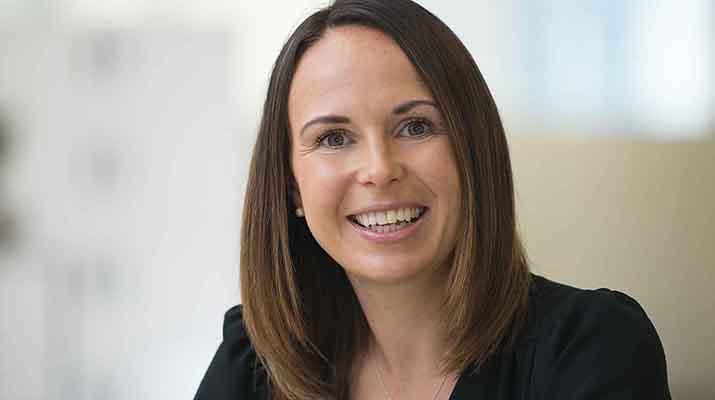
Fearful investors who have shunned away domestic companies in the last couple of years amid concerns over Brexit might be missing meaty returns.
Abby Glennie, manager of the four-star rated Aberdeen UK Mid-Cap Equity fund, thinks there are plenty of investment opportunities in the domestic UK space, especially among small and mid-sized companies.
The fund has produced annualised returns of 8.52% over five years, and in 2019 delivered a hefty 39% - some 8.2% over its Morningstar Category Average.
Buy: Polypipe (PLP)
When Glennie scouts for companies, she is looking for those which exhibit three particular characteristics: quality, growth and momentum. To help inform her investment decisions, she uses an in-house stock screening tool, which can filter out companies based on specific search criteria.
A recent addition to the portfolio is plastic pipe producer Polypipe. “I’ve looked at it for a very long time. It fits quite well within our quality, growth, momentum focus,” she says. “And it scores well in our in-house screening tool.”
The stock is not universally liked, Mark Wright, manager of the five-star rated Seneca Global Income & Growth Trust (SIGT), recently sold the company, after making a good profit, because its share price looked a bit lofty. But Glennie says this is simply how markets work - for every buyer there must be a seller: “It takes two to make a market.”
Following December's General Election, Polypipe's shared price has increased - from 490p at the end of November to 524p today - but Glennie is “not scared to pay up for what I think it’s high quality growth business”.
Since listing on the stock market in 2014, the potential growth of the business has increased, as it has been expanding in complementary areas of the markets – it recently acquired a drainage systems specialist called Alderburgh Group for £14 million, for example.
She also likes that the company is a market leader in its field. New legislation means firms have to use more plastic piping rather than copper, which is a good tailwind for the business, while the transportability of the material is helpful for logistics.
Polypipe has strong ESG characteristics too, says Glennie, for example it focuses on reusing recycled material: “It does its own recycling in-house and has better control over the supply chain than many other companies."
Hold: Team 17 (TM17)
Glennie has held video game developer Team 17 since it first listed on the stock exchange in 2018 and, despite strong volatility, the share price has more than doubled since then, currently trading at 537p.
“We like it because it’s at the lower risk end of video game developing since the company also works for third party developers. There is low capital at risk: the most capital that goes into their games is £1 million, so if a game is not successful it doesn’t challenge the group.”
Glennie likes the culture of the business and its chief executive Debbie Bestwick. “Debbie is fantastic and so impressive. She is the co-founder of the business,” she says. “I met with her many times. We meet every company we invest in once a year.”
She also like the revenue model of the company: it doesn’t monetise a product just the one time, but can benefit as a game evolves and can sell additional content. “I plan on holding on this company for many more years,” she says.
Sell: Vitec (VTC)
Glennie is a long-term investor and doesn’t often sell stocks; the last name to be ejected from the portfolio was Vitec. She sold the stock after just six months and at a lower price than she bought it. “I’m not scared of taking a loss and exiting a position when the investment case we had at the beginning has deteriorated and it’s the right thing to do,” she says.
The company, which is exposed to the camera market and its accessories, has been facing a number of challenges. “The drop in revenues was a big warning for us,” she says; the problem was compounded when group finance director Kath Kearney-Croft left the business.
“We have also seen rapid movements in the camera markets. It’s a bit of an unknown for us – you don’t know if the next cycle will be similar to the previous one.” The rise of smartphones with great cameras in recent years has rendered cameras obsolete for many people.
However, Glennie thinks the company will do well this year because there are big events happening across the globe such as the US election and the Olympics. “But I don’t like a business that depends so much on external events and timing,” she says. “Its balance sheet is OK, but I am worried about the effect of the coronavirus on the company, since 50% of Vitec’s products are made or sold in China or Italy.”





























